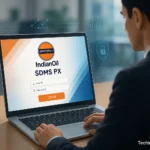In today’s fast-paced digital era, businesses are constantly looking for innovative ways to connect with their customers. One such method, automated direct mail, is gaining traction as a viable solution for effective, personalized communication. By integrating technology with traditional mailing, organizations can improve engagement and boost their marketing strategies. This article will explore the significance of automated direct mail and its crucial role in safeguarding sensitive information through HIPAA compliant mailing.
Understanding Automated Direct Mail
Automated direct mail involves the use of technology to streamline the process of sending physical mail to customers. This method allows businesses to automate the design, printing, and delivery of mail without the manual effort traditionally required. Here are some key components of automated direct mail:
- Personalization: Businesses can craft unique messages tailored to individual customers based on data analytics.
- Efficiency: The automation process largely reduces human error and speeds up delivery times.
- Cost-Effective: By automating mail campaigns, businesses can reduce costs associated with manual mailing tasks.
- Tracking and Analytics: Companies can track the success of their mail campaigns, evaluating metrics such as engagement rates and customer responses.
The Growth of Direct Mail in the Digital Era
While digital communication is booming, direct mail continues to hold significant value. In fact, studies show that direct mail often has a higher response rate compared to email marketing. Here are several reasons why businesses might consider integrating automated direct mail into their marketing strategies:
- Tangible Connection: A physical piece of mail creates a memorable experience that digital channels often fail to provide.
- High Engagement: Personalized mail has a higher chance of being opened and read compared to inbox clutter.
- Combining Channels: When used alongside digital marketing, direct mail can enhance an overall campaign’s effectiveness.
HIPAA Compliant Mailing: A Necessity for Healthcare Providers
For businesses in the healthcare sector, safeguarding patient information is a top priority. This is where HIPAA compliant mailing comes into play. Healthcare providers must adhere to the Health Insurance Portability and Accountability Act (HIPAA), which mandates strict regulations on how patient data is handled, including direct mail. Automated direct mail can be utilized by healthcare organizations to communicate securely and efficiently with patients while maintaining compliance.
Why HIPAA Compliance is Crucial
Understanding the importance of HIPAA compliance can help organizations avoid potential legal issues and protect their reputation. Here are a few reasons why it is essential for healthcare providers:
- Trust Building: Patients are more likely to engage with providers who prioritize their privacy.
- Avoiding Penalties: Non-compliance can result in hefty fines and legal ramifications.
- Improved Patient Experience: Secure and timely communication enhances the overall patient experience while ensuring confidentiality.
Combining Automated Direct Mail with HIPAA Compliance
The integration of automated direct mail with HIPAA compliant mailing offers healthcare providers a unique opportunity to enhance their communication strategy. Here’s how:
- Streamlined Communication: Automated systems provide a seamless way to send appointment reminders, prescription information, and other patient-related communications securely.
- Reduced Workload for Staff: Automation allows healthcare staff to focus on patient care rather than manual mail management.
- Targeted Messaging: Providers can use data analytics to personalize messages, ensuring the health information is relevant and timely.
Challenges in Implementing Automated Direct Mail in Healthcare
While automated direct mail holds immense potential, healthcare providers may face challenges in its implementation. Understanding these challenges and finding solutions is key to a successful strategy:
- Data Security: Ensuring that data management systems are secure and compliant with HIPAA regulations is vital.
- Integration with Existing Systems: Ensuring that automated mailing systems can seamlessly integrate with Electronic Health Record (EHR) systems may require upfront investment.
- Staying Updated with Regulation Changes: Keeping abreast of changes in HIPAA regulations is necessary to ensure ongoing compliance.
The Future of Automated Direct Mail in Various Industries
Beyond healthcare, industries such as retail, finance, education, and non-profits are exploring the benefits of automated direct mail. By leveraging technology, organizations can enhance their outreach and maintain strong relationships with customers. As businesses continue to adapt to a more digital world, those that embrace automated direct mail will likely find themselves ahead of the curve.
Conclusion
Automated direct mail presents an innovative way for organizations to communicate effectively with customers while also addressing critical compliance issues, especially in sectors like healthcare. By utilizing this method, businesses can not only save time and resources but also enhance their marketing effectiveness. As technology and regulations continue to evolve, the synergy between automated direct mail and HIPAA compliant mailing will become increasingly important for healthcare providers and other sectors alike.
In conclusion, whether you operate a healthcare facility or any other business looking to engage your customers more effectively, the time to consider automated direct mail is now. By implementing this strategy, you can build stronger relationships with your clients, promote your services more efficiently, and ensure that sensitive information is treated with the utmost care.



